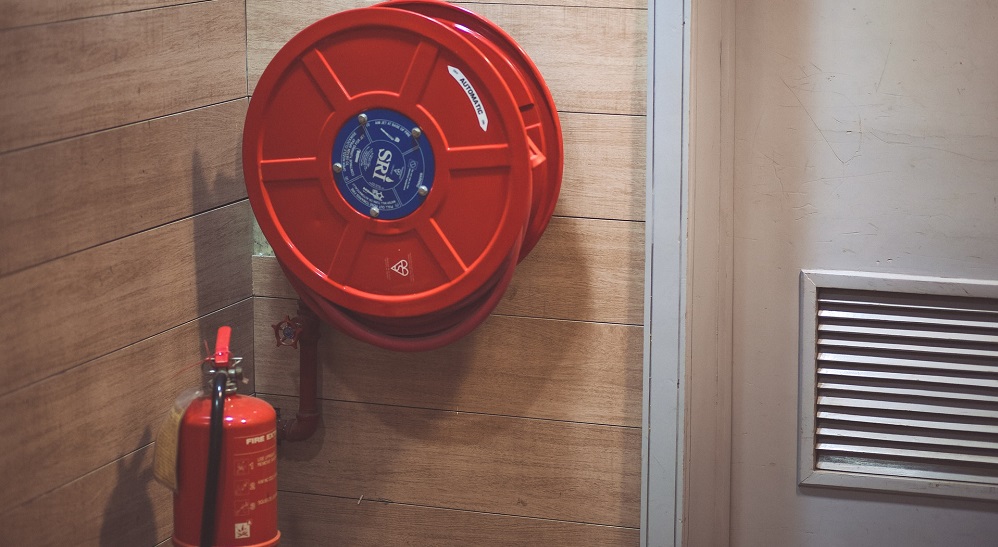Fire safety is one of the most critical aspects of managing a hospitality business. Hotels, restaurants, resorts, and other establishments that cater to the public have a responsibility to ensure the safety of both their guests and staff. While fire prevention may seem like a concern for larger institutions or government-regulated buildings, the reality is that all hospitality businesses must be prepared for potential fire hazards.
In this article, we’ll discuss the essential fire safety measures every hospitality business should implement, including the installation of fire suppression systems, to create a safe environment for everyone within the premises.
1. Establish a Comprehensive Fire Safety Plan
First and foremost, every hospitality business should develop a comprehensive fire safety plan. This plan should cover fire prevention, emergency evacuation procedures, and the roles and responsibilities of staff in the event of a fire. A fire safety plan serves as the backbone of your fire safety efforts and ensures that all employees are aware of how to respond in an emergency.
Key elements of the fire safety plan include:
- Regular fire drills to ensure staff members are familiar with evacuation routes and procedures.
- Designated fire marshals who are trained to manage evacuations and guide guests to safety.
- Clear signage indicating fire exits and escape routes.
- An emergency contact list with local fire department numbers and relevant emergency services.
2. Fire Prevention and Risk Assessment
Preventing a fire before it starts is the most effective way to protect your guests, staff, and property. Conduct regular fire risk assessments to identify areas where fires could potentially start. Common hazards in the hospitality industry include:
- Kitchen equipment: A large portion of fires in restaurants and hotels starts in kitchens due to equipment malfunctions or grease buildup. Ensuring that appliances are regularly cleaned and maintained is essential.
- Electrical hazards: Faulty wiring, overloaded circuits, and improper use of electrical equipment are common culprits. Regularly inspect wiring and replace old or damaged equipment.
- Flammable materials: Hotels often use flammable materials such as bedding, upholstery, and curtains. Use fire-retardant materials wherever possible to minimize the risk.
3. Install Fire Suppression Systems
Fire suppression systems are an essential part of any fire safety plan in the hospitality industry. These systems automatically detect fires and suppress them before they have a chance to spread. For businesses like hotels and restaurants, fire suppression systems are not just a safety feature—they can also be a legal requirement.
While fire alarms and sprinklers are often mandatory in many jurisdictions, fire suppression systems go a step further by actively combating the fire before it causes significant damage. Several types of fire suppression systems can be installed, including:
- Kitchen hood suppression systems: These systems are specifically designed for commercial kitchens. They target grease fires and activate automatically when heat or smoke is detected.
- Water-based suppression systems: Sprinklers and water mist systems are effective in large areas like hotel lobbies or dining rooms.
- Chemical suppression systems: These systems are used in areas with sensitive equipment, such as server rooms or data centers, where water could cause significant damage.
Proper fire suppression systems installation is essential for responding promptly to fire hazards, reducing damage, and ensuring safety through adherence to local codes and manufacturer guidelines.
4. Regular Inspections and Maintenance
Fire safety measures are only effective if they are properly maintained. Ensure that all fire safety equipment, including alarms, extinguishers, sprinkler systems, and suppression systems, are regularly inspected and tested to ensure they are in proper working condition.
- Fire extinguishers should be easily accessible, regularly checked for expiration, and serviced annually.
- Fire alarms and detectors should be tested at least once a month to ensure they are functioning correctly.
- Sprinklers and suppression systems should be professionally inspected at least once a year to make sure they are in good working order.
5. Train Your Staff
Proper staff training is an integral part of fire safety. Every staff member, from front desk attendants to kitchen staff, should be trained on fire safety protocols. This includes understanding how to:
- Recognize potential fire hazards.
- Use fire extinguishers and other firefighting equipment.
- Evacuate guests safely.
- Communicate effectively with emergency services.
Training should be conducted regularly to keep staff members updated on fire safety procedures and to ensure they know exactly what to do in an emergency situation. Additionally, make sure that new hires are trained as part of their onboarding process.
6. Develop a Business Continuity Plan
In the unfortunate event of a fire, a business continuity plan is essential for minimizing disruption to operations. This plan should outline the steps the business will take to continue operations after a fire emergency, including:
- Alternative accommodations for guests in the event that rooms are unavailable.
- Crisis communication strategies to inform guests and the media about the incident.
- Recovery procedures to get the business back up and running as soon as possible.
Having a solid business continuity plan helps reassure both guests and staff that your establishment can recover quickly after an emergency.
Conclusion
Ensuring fire safety in the hospitality industry is not just about installing fire suppression systems; it’s about creating a culture of safety that prioritizes the well-being of guests and staff. By establishing a robust fire safety plan, conducting regular risk assessments, installing reliable fire suppression systems, and training staff, hospitality businesses can effectively mitigate the risk of fires and ensure that everyone on the premises is safe.
Fire suppression systems, along with other proactive measures, offer peace of mind to both the business owner and their customers, protecting assets and saving lives in the event of an emergency. Investing in fire safety today ensures that your hospitality business will thrive, not just in terms of guest satisfaction, but also in maintaining the trust and safety of all who walk through your doors.











